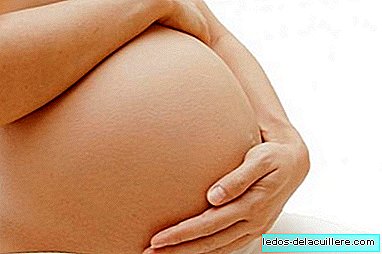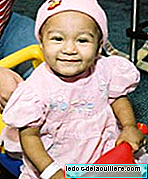
Much has been said in recent years about the influence of the age of mothers in the development of their children. It is known that the best age in biological terms to get pregnant is 25 years. And it is also well known that the older, the greater the risks, both for the mother and the baby, as complications can develop during pregnancy.
However, a new study gives positive and hopeful news to women who have children after age 35. According to the investigation, the children of mothers over 35 years presented better results in tests of cognitive skills.
In contrast to tests performed 40 years ago, children of mothers over 35 years old they are currently more likely to develop better on cognitive skills tests, than those born to younger mothers. But why this change?
The lifestyle of mothers has changed over time
According to the researchers, this change may be due to the fact that women have changed over time. Currently Mothers over 35 tend to have more advantages than young mothers. For example, they are educated women, have a lower tendency to smoke and have better job stability. This did not happen so much in the past. Before most of the women did not finish their studies, the damages of the cigar were not thoroughly known and the family model still prevailed where the man was the only one who worked outside the home.
In addition, many women now wait longer to have their first child, while before at age 35 they already waited for the third or fourth child. Therefore, while these new mothers spend more time with that first child, they do it also being better prepared academically This may be the cause of their firstborn to obtain higher results in intelligence tests.
The study: comparison of three generations
For the study the researchers analyzed three previous longitudinal studies: the National Child Development Study of 1958, the British Cohort Study of 1970 and the Millennium Cohort Study of 2001. Cognitive skills were measured with tests when they were between 10 and 11 years.
Children in the 1958 and 1970 studies born to mothers between 25 and 29 had higher results than the children of women between 35 and 39 years. However, in the study conducted in 2001, the results they obtained had been reversed. And although the results were similar for the children of mothers over 40, the sample was very small, which means that these results should not be taken as determinants.
When the researchers took the social and economic characteristics of the mothers, the differences between the studies disappeared. This indicated that most likely the lifestyle characteristics of the mothers that changed over time were the cause of the difference between the studies.












